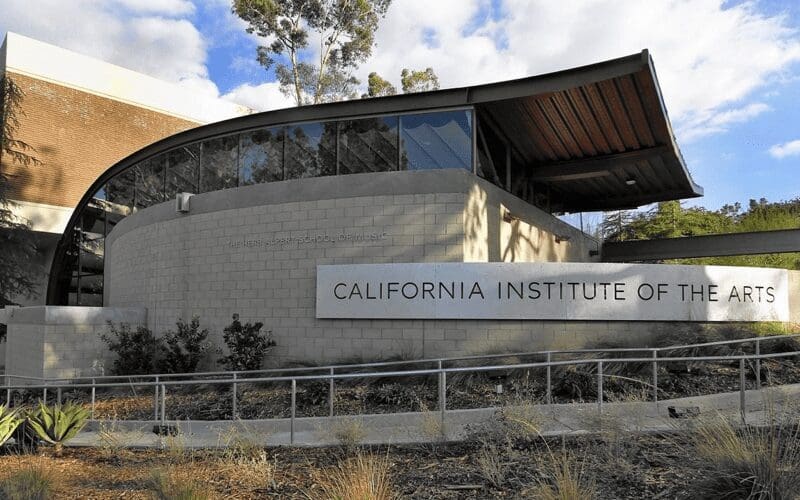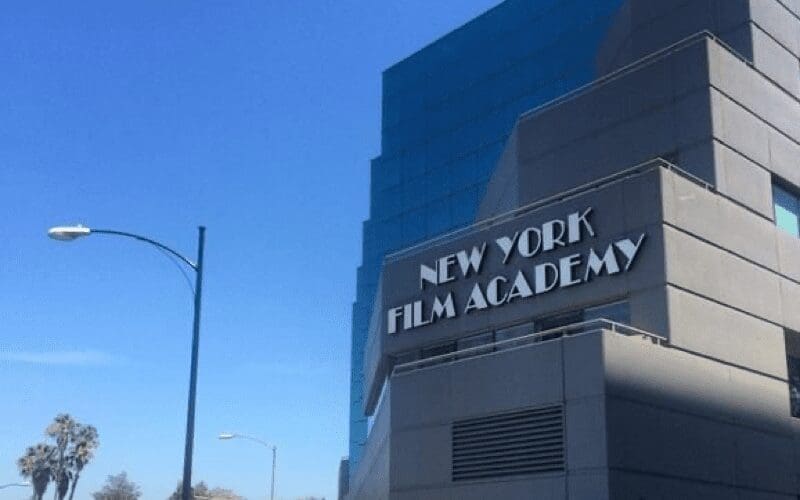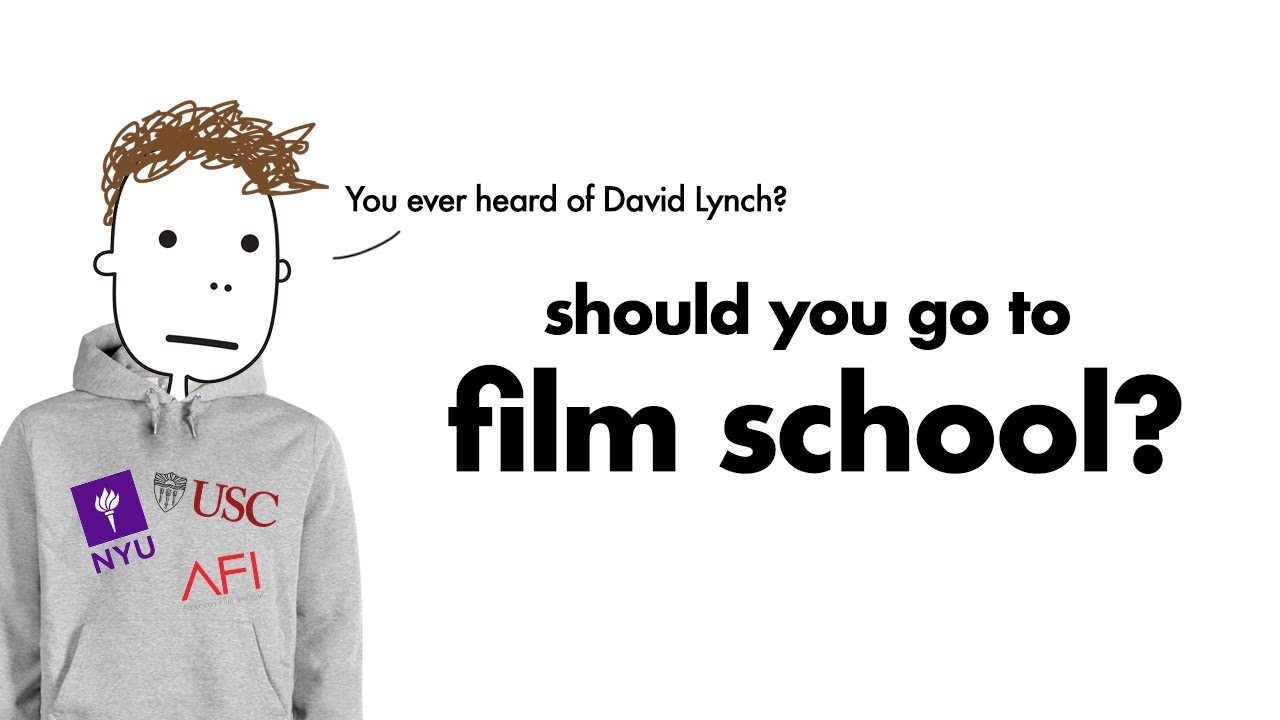Film School is a vital step in any aspiring filmmaker’s blossoming career. And, while not exactly necessary, it might just be the most reliable place to get your foot into the film industry.

In this article, we compile all of the most successful film schools (mainly based in the US). Their alumni, locations, price, and their pros and cons, so you can see what’s best for you. In this list, we will run through five main choices and some online film school picks. Instead of going for an endless array of schools, we’ve picked the best of the best and taken a deeper dive into each one.
There are so many routes to take in film, paths to success. But, if film school is the one for you, then look no further than this guide!
What Is Film School?
Film school is a place to get a university degree in any number of filmmaking practices. Including, but not limited to Cinematography, Directing, Screenwriting, Lighting, and Producing.
The decision on whether to go to film school or not can often be a vital one in any person’s career in cinema. There are many pros and cons to going. The pros are the networking possibilities, access to equipment, and direct access to the tutor’s knowledge and social life.
The cons are also there though. Film school is normally a very pricey degree. The often competitive environment also isn’t for everyone. Nowadays, however, some free or very cheap online filmmaking courses can go over a lot of what film school may already teach you. (We’ll get into that more later!)
It’s a tricky tightrope to walk. And although everyone has their path to success in film, here’s our list. To maybe help give an idea of some of the great facilities out there in some of the best film schools in the world.
CalArts

CalArts is the Los Angeles film school that focuses on a free-spirited and collaborative approach to filmmaking courses. Offering degrees in both Film & Video and Film Directing.
The founding members include Roy Disney (founder of the Walt Disney Company) and Mary Costa – the voice of Sleeping Beauty. This university has the creativity and the arts coursing through its veins.
If you’re a film student at this LA film school then it’s often recommended to collaborate with the actors, animators, and artists that also attend this prestigious Californian film school.
The university embraces new technology to a high degree. Often opting to plunge young filmmakers headfirst into new experiences. Such as creating a film for VR technology and new media movie-making.
The California University of the Arts has astounding facilities and a frequently updated campus. It features numerous galleries and collaboration hubs for students and is the second most expensive film school on this course. A full year of undergraduate, graduate, or doctorate tuition costs $52,850 in tuition.
However, despite the expensive cost that often comes with film school. CalArts is a prestigious place to attend, and going there would stand you alongside some world-class alumni. Such as Tim Burton, Brad Bird, John Lasseter, Sofia Coppola, and most importantly, the Hoff.
Tisch School of the Arts – New York

Within Tisch, there is the Kanbar Institute of Film and Television. This university is located in the heart of Manhattan. It gives a very different approach to filmmaking. Compared to the glossy west coast approach at CalArts. Tisch is far more competitive, with arguably even more impressive alumni such as Martin Scorsese, Spike Lee, and M. Night Shyamalan.
Tisch is one of the top film schools and is also, on paper, less expensive than CalArts, with a yearly fee of $26,451. However, due to the location, living costs are extremely high. So an average year’s tuition plus accommodation and living can work out to almost $75,000.
However, at this university, the fee is not the most difficult thing to deal with. Admission to the film school itself is the real challenge. The Kabar Institute has “the most rigorous selection process” of any school at NYU.
Tisch, however, benefits from its aforementioned location. Its students often cite that the streets of New York provide the best inspiration any filmmaker could need. Having the backdrop of the big apple for some of your first films is quite impressive. Even more so when working with industry-standard equipment and lecturers.
Tisch is a selective university for students with a selective tastes. Many of its creative students go on to have a more gritty style in their filmmaking, such as Scorsese or Lee. But, that should not put off potential students, who should grasp any opportunity to attend this prestigious film college and run with it.
American Film Institute

The American Film Institute is the highest-ranked and one of the best film schools in US and according to most people, the best in the world.
This extremely selective film school takes on a far smaller cohort of graduates than other film schools each year. Opting often for more mature filmmakers. Here, degrees are offered in Directing, Producing, Screenwriting, Cinematography, Production Design, and Editing.
Located in the Hills of Hollywood, the attendees of this institute look over the filmmaking capital of the world. Whilst they study to become a vital part of it. Here, there is a 3:1 ratio of students to faculty members, meaning the tuition here isn’t general. It is specific to each budding filmmaker’s needs.
Sadly, despite its incredible ranking and alumni, the American Film Institute is the most expensive university on this list. And actually, in the top bracket of the most expensive universities in the world, with first-year tuition costing around $59,000 and second-year $62,000. That’s without the living costs and appliance costs which take the fee over $160,000 for a two-year course.
It’s hard to argue with the fact that with that sort of money, a high budget short film could be made with quality actors and professionals. Along with plenty of money to finance its appearance at festivals and independent cinemas afterward. Despite this, if you were to attend the AFI, you’d be joining the ranks of some of the biggest names in film. Including, David Lynch, Ari Aster, Terrence Malick, and Darren Aronofsky. A super cool company!
The National Film and Television School

Located just outside of London, the 50 year old film school has led the way in terms of British film education since its inception.
What makes this film school different from so many others on this list is its vast array of courses. In particular, short courses such as script development or documentary production management can be as short as two days and are often online.
This ranks The NFTS as maybe the place to attend in the current climate, where travel to overseas or far-away universities can be difficult. The NFTS’s forward-thinking approach to digital learning stands in excellent stead to be able to educate its filmmakers to the highest degree. Especially in today’s difficult world.
Not only does the NFTS offer unique courses, but is also unique in several other ways. Not only that it is the highest-ranked film school in Britain, appearing on the Hollywood Reporter’s Top 15 Film Schools in the World list in 2018. But also, it is one of the cheapest options on this list, with a full bachelor’s degree coming in at 25,237 USD or about £18,888.
On top of all these positives, it also helps that the National Film and Television School is a working production house with a number of film sets that have been operating for nearly 100 years. Used by many now-famous filmmakers like multi-oscar award winner Roger Deakins, Wallace and Gromit creator Nick Park, BAFTA-winner Lynne Ramsay and legendary observational documentary filmmaker Kim Longinotto.
The NFTS is a great place to go. Although maybe with the downside that it doesn’t hold the Hollywood and New York links of so many others on this list. This British Film School speaks of its excellent quality of production and hands-on learning.
University of Southern California (USC)

George Lucas, Judd Apatow, John Wayne, John Carpenter, Robert Zemeckis, and the list goes on. At the oldest private research in California, only the finest are selected for its Cinematic Arts program. With an acceptance rate as low as 13%.
$55,320 is roughly the annual cost of being a cinematic student at USC film school, but with it comes an outstanding outlook on learning. USC doesn’t go all-in on a hands-on approach or the theory-driven approach, it instead balances the two. They say “We believe that great ideas arise when theory and practice are in constant interaction, propelling one another forward”.
Students of USC have gone on to win Oscars, Emmys, Golden Globes, NAACP Leadership Awards, the Humanitas Prize, the Pulitzer Prize, D.I.C.E. Awards, and more. This shows that the forward-thinking approach at this classic university is working.
The USC also began a program this year in which students accepted to USC from households with less than an $80,000 annual income will get their tuition 100% free. This approach is something to take note of despite the College’s expensive cost. This large and generous benefit may be a key detail to those finding the financial aspect of being a film student the most difficult to deal with.
Online Film Schools – New York Film Academy

Speaking of online film education, at the moment, this might seem like one of the best options for stuck-at-home students. One such option is the New York Film Academy. This may include New York in the title, but it truly is a global operation. Offering anything from hands-on 3-year directing degree courses to 15-week screenwriting courses online as an alternative.
Here, the wide plethora of options, and worldwide campus locations allow for flexible learning, at home or on-site. A year of degree schooling here costs around $31,447, however many of the online courses are much cheaper, going as low as $450.
For another viable online film-schooling option precisely explained and weighed up, check out our recent article on Online Filmmaking Courses.
Cut!
As seen here, it’s clear that even from the schools mentioned in this article, the diversity in necessary skill levels, entry requirements, alumni, and prices is gigantic. Meaning there is truly something for everyone.
Make sure to research all of the aspects of the place you are applying to, such as who is teaching you, and the campus culture. It’s also helpful to read or watch retrospective reviews or videos by graduates from your film school of choice to gauge and understand their experience and compare it with what you are looking for.
At times, film school can be an extremely tempting, mouth-watering prospect of strict deadlines and creative passion. But make sure to make your decision based on what’s for you, weigh all of the options, nothing’s off the table.
Film school may not be for everyone, but it might be perfect for you. And if that’s the case, we hope this guide helped in coming to that conclusion!




